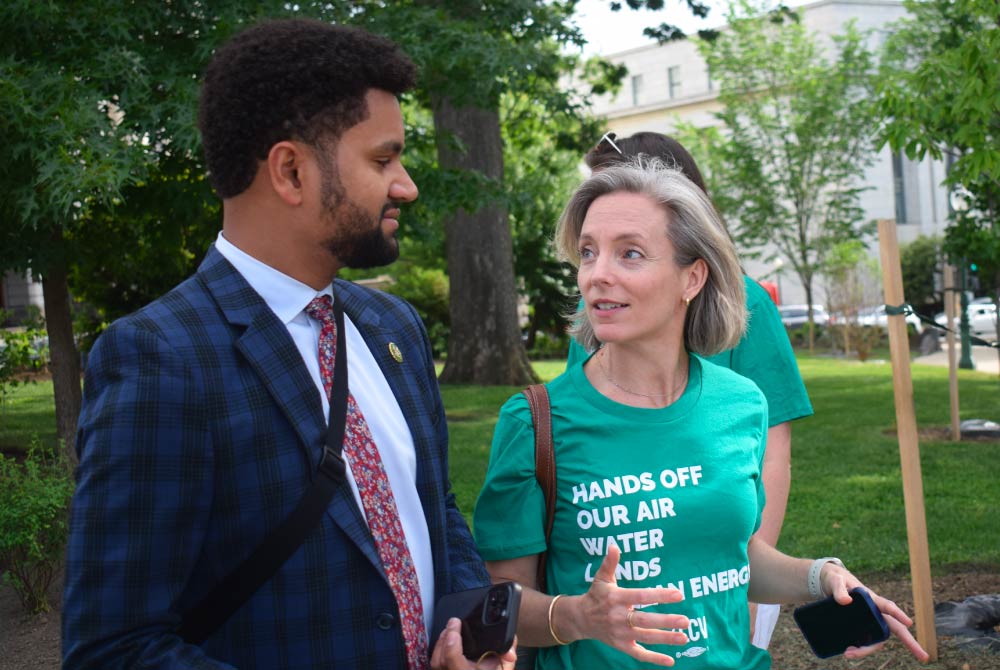
Top 5 Stories Worth Reading – June 2025
Jun 30, 2025

Thank you for the time to speak with you all today about the importance of strong carbon pollution standards from power plants. My name is David Shadburn, and I’m a Senior Government Affairs Advocate focused on Climate Change and Clean Energy at the League of Conservation Voters. On behalf of LCV, our 33 state affiliates, and members across the country, I commend EPA for proposing much-needed limits on climate pollution from power plants and encourage you to finalize limits that cut pollution faster and at a greater number of new and existing plants. We believe the rule needs to be strengthened in the following ways:
First, EPA must speed up the compliance timelines in order to ensure frontline communities get relief from decades of pollution and the U.S. meets its climate commitments. Any new gas plants proposed should have to comply immediately upon operation, not be able to wait until 2035. Existing gas plants should have to reduce emissions more quickly – by 2030 instead of 2035. And existing coal plants should not be allowed to continue uncontrolled operation just because they pledge to close in over a decade and a half – they should have to close by 2028 or reduce their emissions.
Second, EPA must expand the scope of power plants that are covered by these rules. The proposed rule for existing gas plants only covers the largest baseload units over 300 megawatts that run greater than a 50% capacity factor. As proposed, the majority of climate pollution from existing gas plants would continue unabated. We encourage you to reduce the unit size to 100 megawatts and the capacity factor to 40% in order to keep moderately large polluters from getting away without emissions limits.
Third, we urge EPA to achieve greater emissions reductions in some of the proposed categories, including those for new so-called “peaker” plants and intermediate plants.
Fourth, EPA must ensure that impacted communities have meaningful input on these rules, future compliance plans, and more. EPA’s proposed requirements for continuous emissions monitoring must be finalized in the rule and enforced, and EPA and DOT must take subsequent actions to protect against CO2 pipeline and storage pollution in communities.
Finally, EPA must finalize these rules as soon as possible to ensure that the US remains on track to meet its climate goals. We urge you to publish final rules no later than the first months of next year.
EPA has obligations and authorities under the Clean Air Act, as reaffirmed by West Virginia v. EPA and clarified in the Inflation Reduction Act, to regulate CO2 from power plants. This proposal is a good step. EPA must swiftly finalize the strongest possible rules with faster timelines, more power plants covered, and strong community safeguards in place. Thank you again for your time.